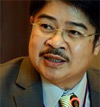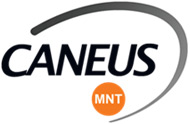|
Sanny Ramos
Jegillos |
| |
 |
Prior to assuming the Senior Adviser post at the
Bangkok Regional Hub in 2014, Sanny Jegillos was the
Regional Disaster Reduction Adviser and Practice
Coordinator for UNDPís Bureau for Crisis Prevention
and Recovery in Asia-Pacific Regional Centre in
Thailand since 2012. From 2005-2011, he was the
Programme Coordinator of the Regional Programme on
Capacity Development for Tsunami affected countries.
Mr. Jegillos has 20 years of progressive
professional experience in risk reduction and
recovery in the Asian region with advanced expertise
in community based disaster risk management. He has
developed and conducted international training
courses, managed and coordinated regional projects.
He also provides technical and policy advisory
services to UNDP Country Offices and International
Non-Government Agencies in strategic and programme
planning and capacity development in disaster risk
management and recovery. He has extensive work
experience in China, Bangladesh, Indonesia, Sri
Lanka, The Philippines, Myanmar, Cambodia and Viet
Nam.
Prior to working for the UNDP, Mr. Jegillos was a
principal partner and training director on disaster
risk management at the International Institute for
Disaster Risk Management, in the Philippines between
1998 and 2005. Between 1992 and 1998 Mr. Jegillos
was senior manager and course director at the Asian
Institute of Technology.
Mr. Jegillos holds a Masterís Degree in Emergency
Management, from the Charles Sturt University, New
South Wales, Australia and a BS in Management and
Industrial Engineering from the Mapua Institute of
Technology (Manila, Philippines) |
|
|
|
|
|
Abstract |
|
|
|
|
|
Helping Countries Establish
National Disaster Loss and Damages Data Base-
Lessons Learned by the United Nations Development
Programme. |
|
|
|
|
|
The ongoing discussions on the successor framework
of the Millennium Development Goals (MDGs) and Hyogo
Framework for Action for Disaster Risk Reduction
reveal their importance to enhance accountability of
countries to minimize losses and damages due to
disasters by obtaining a commitment to a set of
goals and targets. Weaknesses are identified within
the current framework- the MDG had not incorporated
DRR and the HFA consists of process indicators
rather than results indicators. The ongoing
discussion of the succeeding framework/s indicate a
reform oriented road map, i.e. the integration of
DRR targets in the proposed Sustainable Development
Goals (SDGs); and for HFA2, the need to have a clear
set of baseline information, results and risk
reduction targets vis a vis losses and damages.
UNDPís role is to support its partners, particularly
national and local governments in building
resilience to disasters and other types of shocks.
These stakeholders need capacity involving simple,
practical and operational framework, processes and
tools. This include a multi year and multi phase
support through programmes that support countries
graduate towards risk informed development and
recovery/reconstruction. These programmes can
include support to improving accountability for risk
and development, i.e. damage and loss reporting,
clear accountabilities to targets, indicators,
system for monitoring and reporting; improved
coherence with global policy architecture- SDG, HFA,
Climate Change; and measurable increase in public
investment in DRR based on risk information.
The presentation will describe UNDPís experiences
and lessons learned in helping countries establish
capacity for monitoring, reporting and using
national disaster loss and damage databases. This
will include the benefits and their relevance to
planning and decision making, the fundamental
elements required to make them useful and
recommendations on how these can be improved. These
lessons learned are based on UNDPís work in 15
countries in the Asia Pacific Region through the
efforts of the Bangkok Regional Hub. |
|
|
|
|
|


